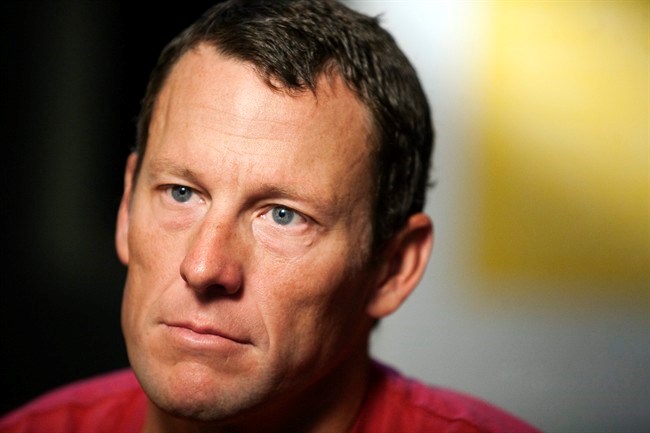GENEVA - The European Broadcasting Union showed its faith in cycling on Wednesday, announcing a third long-term race broadcasting deal since Lance Armstrong was stripped of his seven Tour de France titles.
The EBU, which has members in 56 countries and completes rights deals with race organizers, extended its commitment to the one-day classic Amstel Gold Race through to 2016. The event is the biggest in the cycling heartland of the Netherlands.
Despite cycling's damaged image after the Armstrong case, Europe's public broadcasters also extended rights deals in recent weeks for the Tour of Flanders one-day classic and Criterium du Dauphine, a weeklong warm-up each June for the Tour de France. The EBU also has European rights to cycling's signature event through 2015.
"Apparently there is lots of substantial interest on the market in cycling," Stefan Kuerten, the EBU director of sports and business, told The Associated Press in an interview. "Most of us and others are believing that cycling is on the way ... to being a proper sport again without having any problems with doping."
Rights value and the size of ratings have defied the damage done by doping scandals in recent years, according to the EBU, which doesn't release details of its contracts.
Kuerten described cycling as a "relevant and attractive Olympic sport" that deserved wider attention on free-to-air channels.
"That doesn't mean that we are closing our eyes. We clearly see there are issues that need to be solved," he said, adding that the EBU expects to play a part in that.
The embattled International Cycling Union, which ratified Armstrong's lifetime ban in October, has begun consulting with the sport's stakeholders to help repair deep divisions exposed by a case built by the U.S. Anti-Doping Agency.
The UCI still faces skepticism over its prior relationship with the seven-time Tour champion, and how it dealt with allegations of doping.
"I assume our position will be of interest for the UCI," said Kuerten, though the EBU has no formal ties. The UCI awarded Switzerland-based agency Infront the European and other territorial rights in September to broadcast its world championships through to 2016.
The EBU will instead work with race organizers and broadcasters to encourage the UCI to reform and modernize how cycling is run.
"We are pushing our partners in this direction," Kuerten said. "No one is accepting smoke-screens and that (they) are doing it just for the camera for the next couple of weeks and months."
The EBU has used its influence in the past, after German broadcasters ARD and ZDF withdrew their coverage of the 2007 Tour because of doping cases. Broadcasters then pushed for future contracts to allow them to reduce airtime and deduct fees if races were blighted.
Kuerten declined to discuss what protection clauses are inserted in rights contracts, though acknowledged: "We always react to developments in the markets."
With the UCI in talks to introduce up to 10 new events in a branded "World Series of Cycling," the EBU expects its contracts with established races will be respected.
"We have to see how much at the end materializes," Kuerten said of speculated changes. "Very often, you see a lot of words then the implementation takes a bit longer, or will never happen."
What will endure, he suggested, are the qualities which draw broadcasters and fans to top-level cycling.
"Clear and clean competition," Kuerten said. "This is what they want, and in this respect nothing has changed over the years."



